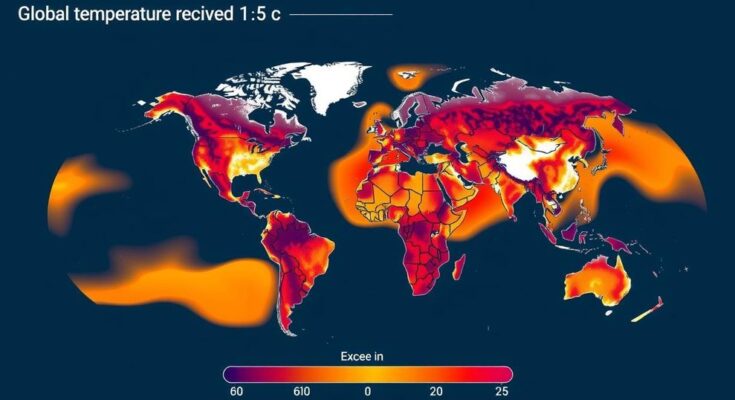According to the Copernicus Climate Change Service, 2024 is expected to be the first year to breach 1.5C of warming, indicating a critical point in the climate crisis. The prediction emphasizes an urgent need for accelerated climate actions as the global community prepares for pivotal UN climate negotiations. Climate-related disasters are on the rise, with the world facing severe implications if swift measures to reduce emissions are not pursued vigorously.
In a revealing report by the Copernicus Climate Change Service (C3S), the year 2024 is predicted to mark the first instance in which global temperatures exceed 1.5 degrees Celsius above pre-industrial levels. This alarming forecast comes just prior to significant climate discussions convened by the United Nations. According to C3S, not only is 2024 expected to surpass the record set in 2023 as the hottest year documented, but it also signifies a dramatic milestone underscoring the urgent need for enhanced climate action ahead of the forthcoming COP29 climate conference. The announcement from the C3S highlights an intensified moment in climate history, particularly indicative of the increasing frequency of heat-related fatalities, diseases, and extreme weather events such as hurricanes and floods. Notably, October 2024 has been characterized as the second hottest October recorded, exacerbated by catastrophic events including flooding in Spain and Hurricane Milton. UN Secretary-General Antonio Guterres emphasized the gravity of the situation, asserting that “humanity’s torching the planet and paying the price,” as evidenced by the multitude of disasters occurring globally this year. The implications of surpassing the 1.5C limit are profound, as C3S estimates that the average global temperature may exceed 1.55C above the pre-industrial baseline, marking an urgent call for concerted action to curtail greenhouse gas emissions at international negotiations slated for Azerbaijan. While crossing this threshold does not constitute a breach of the Paris Agreement’s long-term goals, experts continue to warn that the world is on a trajectory towards a catastrophic temperature rise of 3.1C this century, driven by existing policies and pledges that remain insufficient to mitigate climate change effectively.
The need to curb global warming has become increasingly urgent as scientific evidence correlates rising temperatures with severe weather incidents and ecological degradation. The Paris Agreement aims to limit global warming to below 2 degrees Celsius, ideally to 1.5 degrees Celsius, in order to avert catastrophic climate impacts. The Copernicus Climate Change Service serves as a key agency providing data and insights regarding climate trends, thus playing a pivotal role in informing climate policy and international negotiations. The upcoming COP29 conference represents a critical juncture for nations to assess and enhance their climate commitments in light of mounting environmental challenges.
The projection that 2024 will exceed 1.5C of warming above pre-industrial levels is a clarion call for immediate and robust climate action. With rising temperatures and increasingly severe climate-related events, experts have underscored the urgent need for countries to strengthen their commitments ahead of significant climate talks. The current situation reflects a pressing moral responsibility, as inaction could precipitate irreversible damage to ecosystems and human livelihoods worldwide.
Original Source: www.aljazeera.com




